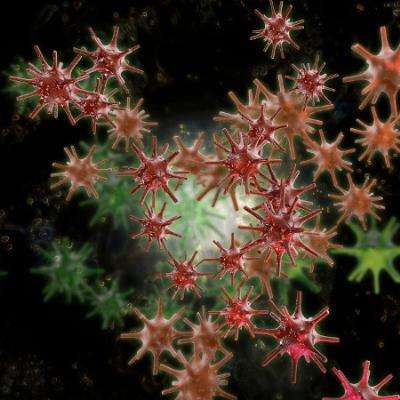Scientists decode world's most complex human virus

Cytomegalovirus – or CMV - is the most complex virus known to man. Most people will in their lives become infected by CMV and, because it is a herpes virus, infection lasts a lifetime. CMV can cause severe disease in immunosuppressed transplant recipients or individuals with HIV/AIDS, and is responsible for the birth defects of around a thousand babies annually.
A study in the leading science journal Cell describes how cutting-edge 'viromics' technology has tracked more than 150 viral and 8000 cell proteins through the course of a four-day CMV infection. Previous studies by the team show that CMV hijacks normal cell processes to produce thousands of new viruses. In this study, scientists were able to mine massive datasets to provide extraordinary detail on exactly how the virus commandeers the cell's metabolism and compromises our immune defences.
Findings detected 29 different CMV proteins on the surface of the infected cells. Being on the cell surface, these 29 proteins present potential targets for antibodies, which in turn opens up pathways to tailor a vaccine or antibody therapy aimed at to triggering the immune system to recognise and kill the CMV-infected cells that are "flagged" by the antibodies.
Although viromics was developed using CMV, it is already being adapted to study other infection agents.
"This new technology is phenomenal. Never before has an infection been analysed in such detail," said Professor Gavin Wilkinson from the Cardiff School of Medicine. "The dataset provides a fantastic resource that will inform the development of vaccines and antivirals. The technology allows us to look at the effect of the virus on virtually every protein in the cell."
More information:
"Quantitative Temporal Viromics: An Approach to Investigate Host-Pathogen Interaction." Michael P. Weekes, Peter Tomasec, Edward L. Huttlin, Ceri A. Fielding, David Nusinow, Richard J. Stanton, Eddie C.Y. Wang, Rebecca Aicheler, Isa Murrell, Gavin W.G. Wilkinson, Paul J. Lehner, Steven P. Gygi. Cell April 3, 2014.
DOI: dx.doi.org/10.1016/j.cell.2014.04.028
Journal information: Cell
Provided by Cardiff University

















